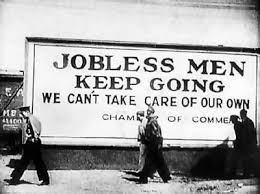COVID Crisis Is Being Followed by A Jobs Crisis Resolution Foundation Report Highlights
Thursday 18 February, 2021 Written by Somon Collyer/Resolution Foundation/BBC
COVID CRISIS DEEPENS - Almost two million people have not worked for at least six months due to the economic impact of the pandemic, the BBC reported today from a report by the Resolution Foundation think tank.
Those people affected were either unemployed or fully furloughed, the Resolution Foundation think tank said.
It is calling for the furlough scheme to remain in place for several months after lockdown restrictions are eased.
The Treasury said the government would continue to invest in protecting and creating jobs.
Over 750,000 families are currently in arrears with their housing payments, and over half (450,000) of these families are likely to have fallen behind as a direct result of the Covid-19 crisis.
Over 750,000 families were behind on their housing costs in January, an increase of around 450,000 compared to pre-pandemic levels, and that renters have been hit hardest.
Worryingly, 300,000 of the total number of families in arrears also include dependent children, suggesting they are especially vulnerable.
The report notes that the UK’s jobs crisis is driving this disparity across housing tenure. Close to one-in-four (24 per cent) private renters have seen their earnings fall during Covid-19 crisis, compared to one-in-six (16 per cent) working age adults with a mortgage.
Another factor is that over the course of the pandemic, one-in-ten (10 per cent) of families with a mortgage have received a mortgage holiday from their provider, giving them some much-needed respite.
Almost two million workers were unemployed or fully furloughed in January – and had been for at least six months – highlighting the scale of lasting damage to the UK’s labour force that will need to be addressed in the Budget, according to major new research from the Resolution Foundation.
Long Covid in the labour market – supported by the Health Foundation – examines the state of the labour market during the current lockdown, the cumulative impact of the longer than expected crisis so far, and workers’ prospects for the months ahead as the economy starts to recover.

Image: Great Depression Poster.
The report finds that the number of workers on the Job Retention Scheme (JRS) has risen to around 4.5 million during the current lockdown – half the 9 million peak during the first lockdown – showing that its impact on the labour market has been far less severe as firms have adapted to operating through the pandemic.
Instead, the cumulative impact of a crisis that has lasted almost a year is causing the biggest challenges in the labour market. While all recession cause a rise in long-term unemployment, this crisis poses new challenges in the form of long-term furlough.
The report finds that around 700,000 workers had been unemployed for at least six months in January, while a further 500,000 workers had been fully furloughed (not working any hours) for that many months. Because some people have moved between unemployment and full furlough in recent months, the total number who were unemployed or fully furloughed in January, and had been so for at least six months, was 1.9 million.
The Foundation says that while those on long-term furlough have had far greater financial support and have an easier route back into work (through their current employer), than those who have lost their jobs, they face many of the same challenges in terms of a loss of skills and missing out on earnings growth.
The report shows that while the outlook for the economy has improved, many workers remain concerned about their own job prospects.
Around 8 per cent of workers currently employed either expect to lose their jobs in the next three months or have been told that they would be made redundant. This figure rises to 21 per cent among those who have been furloughed for at least six months of the crisis.
The Foundation says the Chancellor should respond to the risk of long Covid in the labour market by setting out his own roadmap for phasing out the JRS (Job Rention Scheme) that is sensitive to public health restrictions and the sectoral nature of the crisis.

Image: Workers not needed.
The report calls for the full JRS to remain in place for several months after public health restrictions have been lifted to give firms time to bring staff back and remain in place for longer in sectors still subject to legal restrictions, such as hospitality and leisure. The JRS should then be phased out by gradually, increasing the minimum hours required of workers in order for support to be provided.
The Chancellor also needs to ensure support for the long-term unemployed is delivered by extending the Kickstart Scheme into next year, and that long periods of furlough are considered when it comes to deciding which workers access extra back to work support via the Restart Scheme.
Finally, the Chancellor can encourage wider job creation by introducing a wage subsidy scheme targeted at maximising employment in hard-hit sectors, or raising the National Insurance threshold on new starters, and investing directly in new jobs in areas such as social care.
ABC Comment, have your say below,

1 comment
-
Comment Link
 Thursday 18 February, 2021
posted by
Simon Collyer
Thursday 18 February, 2021
posted by
Simon Collyer
Leave a comment
Make sure you enter all the required information, indicated by an asterisk (*). HTML code is not allowed.
Join
FREE
Here










